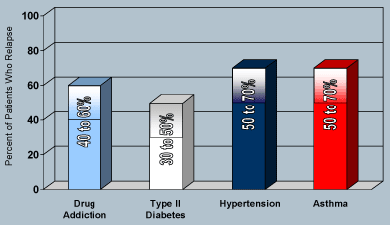Many Factors are Involved in Addiction
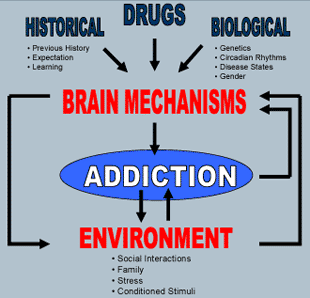
Drug addiction shares many features with other chronic illnesses, including a tendency to run in families (heritability), an onset and course that is influenced by environmental conditions and behavior, and the ability to respond to appropriate treatment, which may include long-term lifestyle modification.1
Addiction is a chronic disease similar to other chronic diseases such as type II diabetes, cancer, and cardiovascular disease.
Human studies of addictive behaviors have clearly implicated both environmental and genetic influences, as well as interactions between the two. While genetics play a major role in defining who we are, the environment in which we are raised is just as influential.
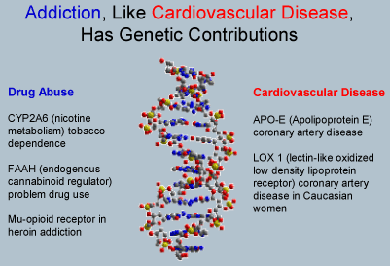
Evidence from adoption and twin studies demonstrate that addiction, like other chronic diseases, is a heritable disorder and that genes play a role in vulnerability to addiction. Genes can also play a role in protecting individuals from addiction.
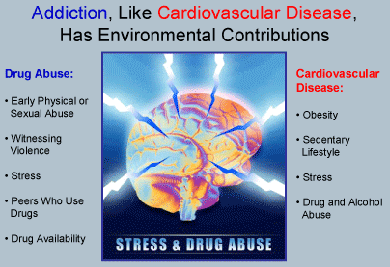
As with all complex diseases, environmental risk and protective factors interact with genetics to determine the course and outcome of disease. Identifying and modifying environmental factors that contribute to health and disease are part of NIDA's mission, as well as that of the other NIH Institutes and Centers.
Addiction is a chronic disease similar to other chronic diseases such as type II diabetes, cancer, and cardiovascular disease.
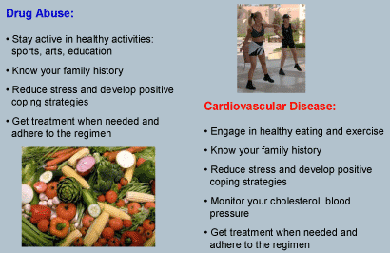
No one chooses to be a drug addict or to develop heart disease.
Sometimes people do choose behaviors that have undesirable effects. Personal responsibility and behavioral change are major components of any credible treatment program. Addiction, like heart disease, cancers, and type II diabetes, is a real and complex disease.
Addiction and Cardiovascular Disease Change Biology
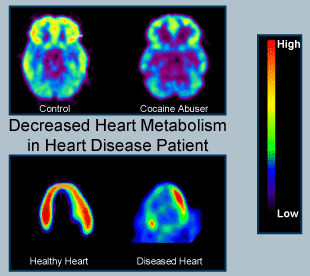 Sources: From the Laboratories of Drs. N. Volkow and H. Schubert
Sources: From the Laboratories of Drs. N. Volkow and H. SchubertImaging studies have shown evidence of tissue malfunction in the brains of those with addiction, and in the hearts of people with heart disease.

